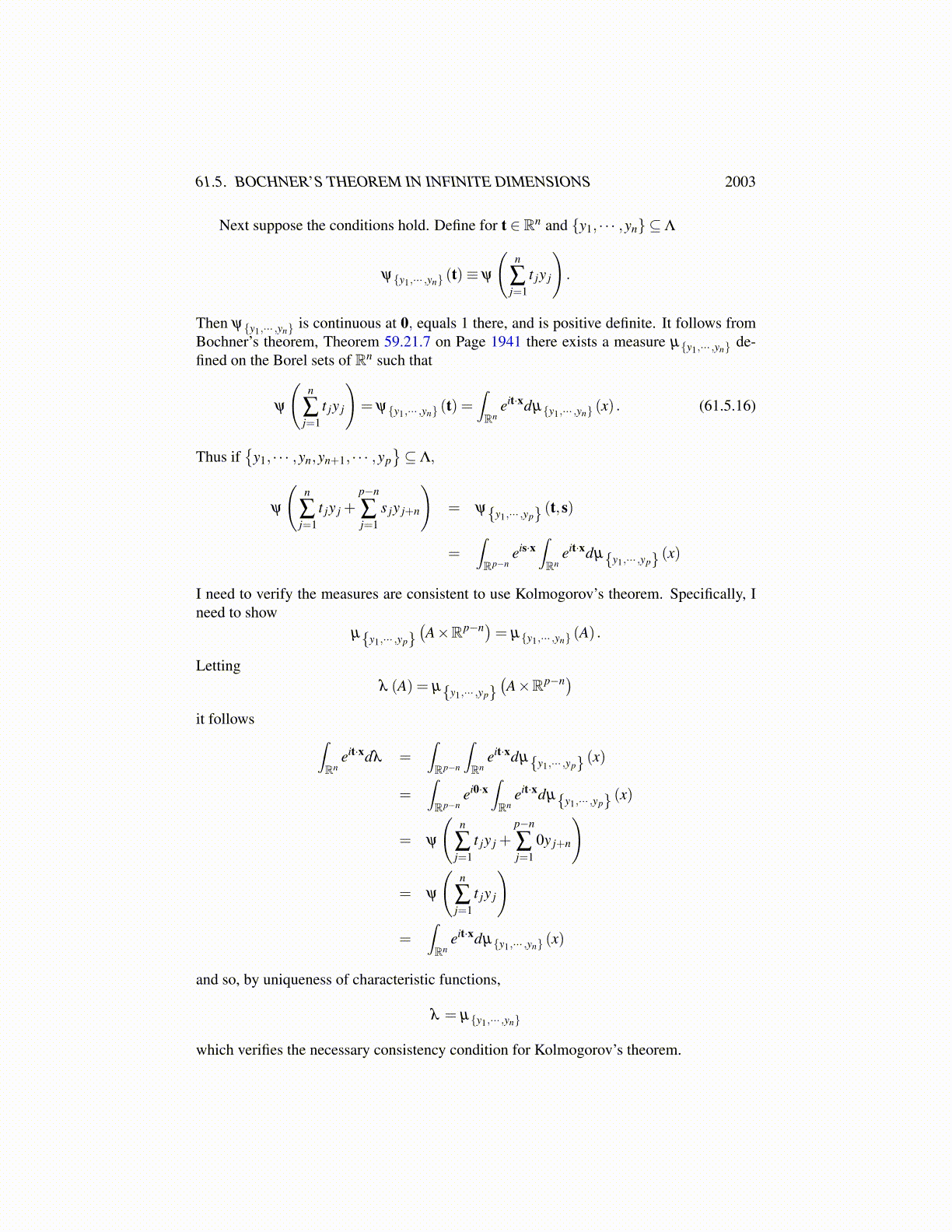
61.5. BOCHNER’S THEOREM IN INFINITE DIMENSIONS 2003
Lemma 61.5.1 Let A denote sets of the form
{x∗ : θ (x∗) ∈U}
where U ∈ E . Then A is an algebra and σ (A ) = σ (X). Also{θ−1 (U) : U ∈ σ (E )
}= σ (X)
Proof: Since E is an algebra it is clear A is also an algebra. Also, A ⊆ σ (X) becauseyou could let U have only one Ay not equal to R and all the others equal to R and then
{x∗ : θ (x∗) ∈U}={
x∗ : y(x∗)≡ x∗ (y) ∈ Ay}∈ σ (X) .
Therefore, σ (A ) ⊆ σ (X) . I need to verify that for an arbitrary x, it is measurable withrespect to σ (A ) . However, this is true because if x is arbitrary, it is a linear combinationof {y1, · · · ,yn} , some finite set of functions in Λ and so, x being a linear combination ofmeasurable functions implies it is itself measurable.
By definition, θ−1 (U) is in A whenever U ∈ E . Now let G denote those sets, U
in σ (E ) such that θ−1 (U) ∈ σ (A ). Then G is a σ algebra which contains E and so
G ⊇ σ (E )⊇ G . This proves the last claim. This proves the lemma.
Definition 61.5.2 Let ψ : X → C. Then ψ is said to be pseudo continuous if whenever{x1, · · · ,xn} is a finite subset of X and a = (a1, · · · ,an) ∈ Rn,
a→ ψ
(n
∑k=1
akxk
)is continuous. ψ is said to be positive definite if
∑j,k
ψ (xk− x j)αkα j ≥ 0
ψ is said to be a characteristic function if there exists a probability measure, µ defined onσ (X) such that
ψ (x) =∫
X∗eix∗(x)dµ (x∗)
Note that x∗→ eix∗(x) is σ (X) measurable.Using Kolmogorov’s extension theorem on Page 59.2.3, there exists a generalization of
Bochner’s theorem found in [125]. For convenience, here is Kolmogorov’s theorem.
Theorem 61.5.3 (Kolmogorov extension theorem) For each finite set
J = (t1, · · · , tn)⊆ I,
suppose there exists a Borel probability measure, νJ = ν t1···tn defined on the Borel sets of∏t∈J Mt for Mt =Rnt for nt an integer, such that the following consistency condition holds.If
(t1, · · · , tn)⊆ (s1, · · · ,sp) ,